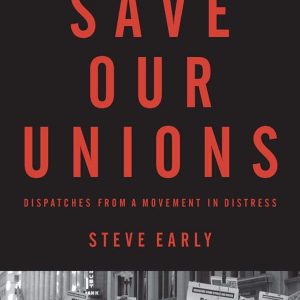SAVE OUR UNIONS: A REVIEW
It was the summer of 1969. I was living in San Francisco. I had just gotten a job with Pacific Bell, the West Coast telephone company.
One afternoon, I was performing some routine maintenance when a shop steward walked up to me and said, “Put down your tools; we’re walking out.”
I looked up, saw other workers heading for the exit, and dutifully followed.
We gathered across the street from Pacific Bell building and milled around for a while.
Finally, someone (I can’t remember who) told us that the company had disciplined two stewards for union activity and that the walkout was called to protect them. We were told to go home and report back to work the next morning. If the issue was resolved, we’d work; if not, we’d stay out.
The next morning, I showed up and resumed working. The disciplined stewards were also back on the job.
My wildcat strike experience wasn’t unique. There had been another one at another Bay Area Pacific Bell work site within the last year.
African-American auto workers in Detroit and sanitation workers in Memphis had conducted wildcat strikes to fight racism, and other workers in other cities had walked off the job to protest speed up, safety problems, management harassment, and other grievances.
In 1970, more than 200,000 postal workers walked of the job defying their union leadership and President Nixon who both told them to return to work.
Over the next ten years, wildcat strikes took place among auto workers, municipal employees, miners, truck drivers, food processing workers, and workers in other industries…

Comments are closed.